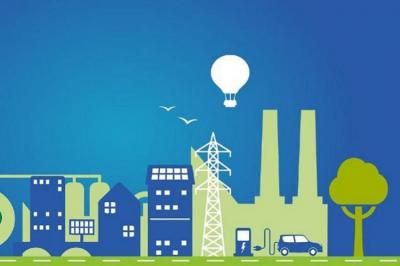Jonathan Brearley
Chief Executive
Dyddiad cyhoeddi
Sector diwydiant
- Generation and Wholesale Market
- Transmission Network
- Distribution Network
Dolenni cysylltiedig
Back in 2007 the UK was second-to-last in Europe for renewable energy, producing less than 2% from renewable sources. Our low carbon options seemed incredibly expensive: offshore wind costs were several times the market price of traditional sources and solar generation seemed out of reach in a country not famed for its sun.
But 2007 was the year that the UK government developed and introduced into parliament the landmark decision to sign up to the Climate Change Act – enacted in 2008, setting legally binding targets to hit net zero by 2050. 14 years on, despite mistakes along the way, we have made far more progress than we could ever imagine.
Generation from renewable sources has increased year-on-year: in 2020 it made up almost half of our electricity generation. Offshore wind and solar costs have fallen dramatically to roughly the same level as the rest of the market. This is an incredible achievement and we can now genuinely see a pathway to a zero carbon electricity system, despite some challenges remaining.
This is not to say the UK is exceptional, we are simply a small part of a much wider global transformation of the energy system. Earlier this week, Ofgem launched its programme in the run up to the COP26 climate change conference, and we brought together regulators from across the world so we can collaborate to address shared challenges.
I remember visiting India as recently as 2013 and being told in no uncertain terms that coal would dominate over renewable energy because it was cheaper. Yet India now has a renewables target of 450 gigawatts by 2030, almost five times the entire UK generation system.
The USA has made incredible progress and is now committing to go further and faster by cutting emissions by 50-52% by 2030. China has also stepped up by rolling out an emissions trading scheme. And our friends in Europe who are already on track to meet their 2020 goals have increased their targets to 55% reductions by 2030 compared to 1990 levels.
Right across the world this major global transition is well underway. Regulators have already been at the heart of this change and will continue to drive it forward within the policies of our governments. We should be incredibly proud of what we have already achieved.
Although there are very different energy systems across the world, most of the challenges we face as regulators are the same. We need to work together to find the best answers, sharing and learning from each other's best practice – and each other's mistakes.
However far we have already gone, there is always more to do: we will need to go further and faster if we are to avoid some of the most dangerous effects of climate change.
Regulators will need to design new market and regulatory arrangements to manage power systems that look completely different to today’s with fragmented sources of energy, variable generation and the need to flex demand to better match supply.
For example, the costs for consumers to charge electric vehicles can be kept low if we are able to charge them at the right times. But if we don't take action to design the market to do that, those costs will be significantly higher. We need to continue to make this change at the lowest cost to make sure we maintain public confidence in the transition.
Of course, those things that we’ve always cared about as regulators loom even larger in this transition. Many of us are preoccupied with avoiding a cost burden falling on those least able to pay. We know there are huge distributional issues to worry about if we are to have a just transition.
With such a long-term project there are also questions about fairness between generations. There is a need for this generation to avoid putting financial costs on our children and our grandchildren not only through climate change itself, but also through the costs of investment in the new energy system that we need.
The job of regulators is changing. We're not starting a technological revolution; we're in the middle of one. To make sure we can protect our customers’ interests and drive that transition to net zero we will need to be fast, responsive, and reactive. We will need to build collaborative relationships with the industries, energy companies and wider sectors that we work with to be successful.
In the struggle to support consumers through the ongoing Covid crisis, regulators have already had to be exactly what we need to be in the future. We moved fast, adapted quickly, and we focused on our customers’ needs, working across our sector with governments and with NGOs. I want to say thank you to all those in our sector, companies, regulators, NGOs and governments for the way we worked together to protect customers’ needs.
There aren’t many good things we are going to take away from this pandemic. But I want us to bottle the spirit of cooperation that supported our industries through the pandemic and use that collaboration to drive our progress to net zero.
We can all work together within our sectors across the world to meet our 2050 goals, supporting a transition to a more efficient, zero carbon energy system of the future while protecting our customers’ interests.
Ofgem is up for this challenge and we look forward to working with partners across the UK and around the globe.

